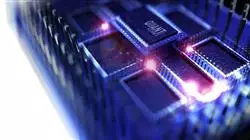University certificate
The world's largest faculty of engineering”
Description
Quantum Computing has arrived to revolutionize the communication sector. Specialize in this constantly evolving industry and achieve success"

Knowledge and specialization in Quantum Computing is a winning bet. It is today and will undoubtedly be even more so in the future. Quantum theory can be applied to various sciences and factors, such as Artificial Intelligence, cryptography, cybersecurity, machine learning, Blockchain, error correction, IoT, biotechnology, medicine, among other areas.
A key area of interest and where Quantum Computing is proving to be most efficient is in the field of Machine Learning. This postgraduate certificate shows its application in real proactive, predictive and prescriptive problems. Students who acquire knowledge now, in quantum technologies, will be the leaders in programming in the near-term future.
In the course of 6 weeks, the graduates will deepen their understanding of the field of application of Quantum Computing, understanding the industrial benefits it brings, so they will be positioned at the technological forefront and will be able to lead ambitious projects in the present and in the future. In addition, they will have the best study methodology 100% online, which eliminates the need to attend classes in person or to have a predetermined schedule.
Completion of this postgraduate certificate will place Engineering and Industry 4.0 professionals at the forefront of the latest developments in the sector"
This postgraduate certificate in Quantum Computing contains the most complete and up-to-date program on the market. The most important features include:
- Case studies presented by experts in Computing Quantum
- The graphic, schematic, and practical contents with which they are created, provide practical information on the disciplines that are essential for professional practice
- Practical exercises where self-assessment can be used to improve learning
- Its special emphasis on innovative methodologies
- Theoretical lessons, questions to the expert, debate forums on controversial topics, and individual reflection assignments
- Content that is accessible from any fixed or portable device with an Internet connection
You are facing an emerging market where, due to its complexity and immaturity, obtaining the right knowledge and advice will give you a competitive advantage in the labor market"
The program includes, in its teaching staff, professionals from the sector who bring to this program the experience of their work, in addition to recognized specialists from prestigious reference societies and universities.
The multimedia content, developed with the latest educational technology, will provide the professional with situated and contextual learning, i.e., a simulated environment that will provide immersive education programmed to learn in real situations.
This program is designed around Problem-Based Learning, whereby the professional must try to solve the different professional practice situations that arise during the academic course. For this purpose, students will be assisted by an innovative interactive video system created by renowned and experienced experts.
Knowledge and specialization in Quantum Computing at TECH is a winning bet"

You will observe the latest advances in Quantum Computing and you will be able to put them into practice"
Objectives
The postgraduate certificate in Quantum Computing aims to provide comprehensive training in quantum techniques for professional Information and Communication Technology (ICT) engineers. This qualification shows what benefits current and future quantum technologies can provide to machine learning, focusing on algorithms such as Kernel-based models, optimization and convolutional networks.

The direct application of the knowledge acquired about Blockchain and Digital Twins in real projects is an added professional value, which very few engineers specialized in Information and Communication Technologies can offer"
Objetivos generales
- Demonstrate the differences between quantum computing and classical computing
- Analyze the mathematical foundations of quantum computing
- Determine the main quantum operators and develop operational quantum circuits
- Analyze the advantages of quantum computing in examples of quantum "type" problem solving
- Develop and demonstrate the advantages of quantum computing in application solving examples (games, examples, programs)
- Demonstrate the different types of projects achievable with classical Machine Learning techniques and the state of the art in quantum computing
- Develop the key concepts of quantum states as a generalization of classical probability distributions, and thus to be able to describe quantum systems of many states
- Analyze how to encode classical information in quantum systems
- Determine the concept of "Kernel Methods" used in classic Machine Learning algorithms
- Develop and implement learning algorithms for classical ML models in quantum models, such as PCA, SVM, neural networks, etc.
- Implement DL model learning algorithms on quantum models, such as GANs
Specific Objectives
- Analyze the need for quantum computing and identify the different types of quantum computers currently available
- Specify the fundamentals of quantum computing and its characteristics
- Examine the applications of quantum computing, advantages and disadvantages
- Determine the basic fundamentals of quantum algorithms and their internal mathematics
- Examine Hilbert space of dimension 2n, n-Qubits, states, quantum gates and their reversibility
- Demonstrating Quantum Teleportation
- Analyze Deutsch's Algorithm, Shor's Algorithm and Grover's Algorithm
- Develop examples of applications with quantum algorithms
- Analyze quantum computing paradigms relevant to machine learning
- Examine the various ML algorithms available in quantum computing, both supervised and unsupervised
- Determine the different DL algorithms available in quantum computing
- Understand the use of the quantum Fourier Transform in indicator integration for quantum ML models, as well as for feature selection
- Develop pure quantum algorithms for solving optimization problems optimization problems
- Generate specialized knowledge on hybrid algorithms (quantum computation and classical computation) to solve learning problems
- Implementing learning algorithms on quantum computers
- Establish the current status of QML and its immediate future

Thanks to this degree you will acquiere third and practical knowledge about new industrial models around quantum technologies”
Postgraduate Certificate in Quantum Computing
Quantum computing is based on the principles of quantum mechanics. With it, it is expected that complex problems in areas such as cryptography, artificial intelligence and molecular simulation can be solved. Although it is still under development, its potential is enormous. Being a complex and constantly growing field, TECH Global University has developed the most complete and up-to-date Postgraduate Certificate in Quantum Computing in the educational panorama. We have adjustable schedules, state-of-the-art interactive digital content and a team of highly experienced professors, which makes us a high-level professionalization, just a click away. As you progress through this program, you will delve into the fundamentals of quantum theory, quantum programming, quantum algorithm design, and the implementation of quantum processes in physical systems.
Get your qualification at the world's largest online university
Quantum computing is a discipline based on the use of the principles of quantum physics for the development of information and communication technologies. These principles enable the creation of algorithms and computational processes that are significantly faster and more efficient than classical computational processes. By enrolling in this TECH program, you will not only receive the most complete content on the market, but you will also have at your disposal a unique methodology of its kind. All the pedagogical content will be available on a virtual teaching platform, 24 hours a day, which will allow you to take the postgraduate certificate at the times that best suit you. Upon completion of the program, you will be able to work in various research and development contexts, including research laboratories, technology companies or academic institutions.







